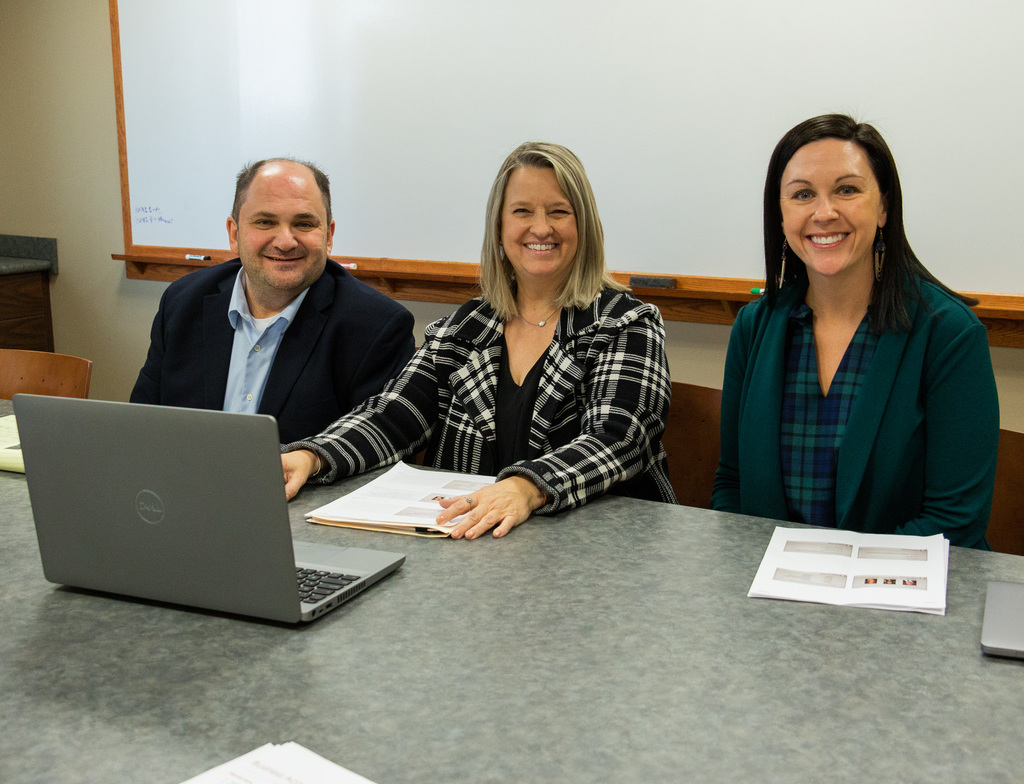CSC colleagues make national presentation

CHADRON – Three Chadron State College employees made a virtual presentation to the national Academic Chairpersons Conference (ACC) earlier this month. Dr. Wendy Waugh, Dr. Shaunda French-Collins, and Dr. James Koehn presented Not Your Typical Administrator, best practices for cultivating and maintaining positive working relationships between faculty and administration.
The 39th annual ACC was originally planned for San Antonio, Texas, but due to increasing cases of COVID-19, was changed to a virtual format, according to Waugh.
Waugh is the dean of Graduate Studies and the School of Business, Mathematics, and Science. She taught Management Information Systems for 28 years, served as department chair for three years, before becoming dean in 2019.
French-Collins is the department chair for Communication, Music, Art, and Theatre. She is a professor in Communication Arts and serves as Graduate Studies Faculty Coordinator and Faculty Service Learning Coordinator.
Koehn is the chair and a professor in the Business Academy. He serves on the Education Advisory Committee of the Nebraska Board of Public Accountancy. Previously, he served as director of the Small Business Development Center at CSC.
The presenters examined the trend of higher education leaders wearing many hats. They discussed the multifaceted roles they each fill, the importance of understanding situational roles and communication, and examined the notion of successfully managing up or developing a positive and productive relationship with one’s supervisor.
Koehn explained the many roles academic chairs have can include responsibilities to students as an instructor and an adviser, duties interacting with faculty colleagues as a mediator, motivator, recruiter, leader, and assessor.
“Other roles of a department chair may be related to upper administration including advocate, politician, problem solver, and negotiator. Additional responsibilities include interacting with outside constituents as a communicator or representative of the institution,” Koehn said.
He emphasized the role of a listener is one of the most important and often overlooked roles of faculty, chairs, and administrators.
French-Collins outlined how the Communication Accommodation Theory developed by Howard Giles relates to verbal, non-verbal, upward, and downward communication.
“We may accommodate our communication depending on the role we are serving, perhaps at a meeting, or in a brief hallway interaction. In addition to our current role, our attitudes and beliefs about the discussion may lead us to converge or diverge in communication interactions,” French-Collins said. “Be aware of your role. Who you are communicating with, and when, and where.”
Waugh outlined Angus McLeod’s 10 features of managing up.
“There’s a better way than managing down using authority, power, and fear. Managing up helps you to build trust with your boss and will facilitate growth and success,” Waugh said. “It requires trust and open communication. It encourages others to learn and grow. Managing up cultivates a productive working rapport. Learn your boss’s management style and increase awareness of your own so you can match it.”
Following their presentations, they shared three case studies for the participants to apply the principles they presented and prompt discussion among conference participants about solutions to hypothetical situations.
—Tena L. Cook, Marketing Coordinator
Category: Campus News, Employee Awards & Achievements
